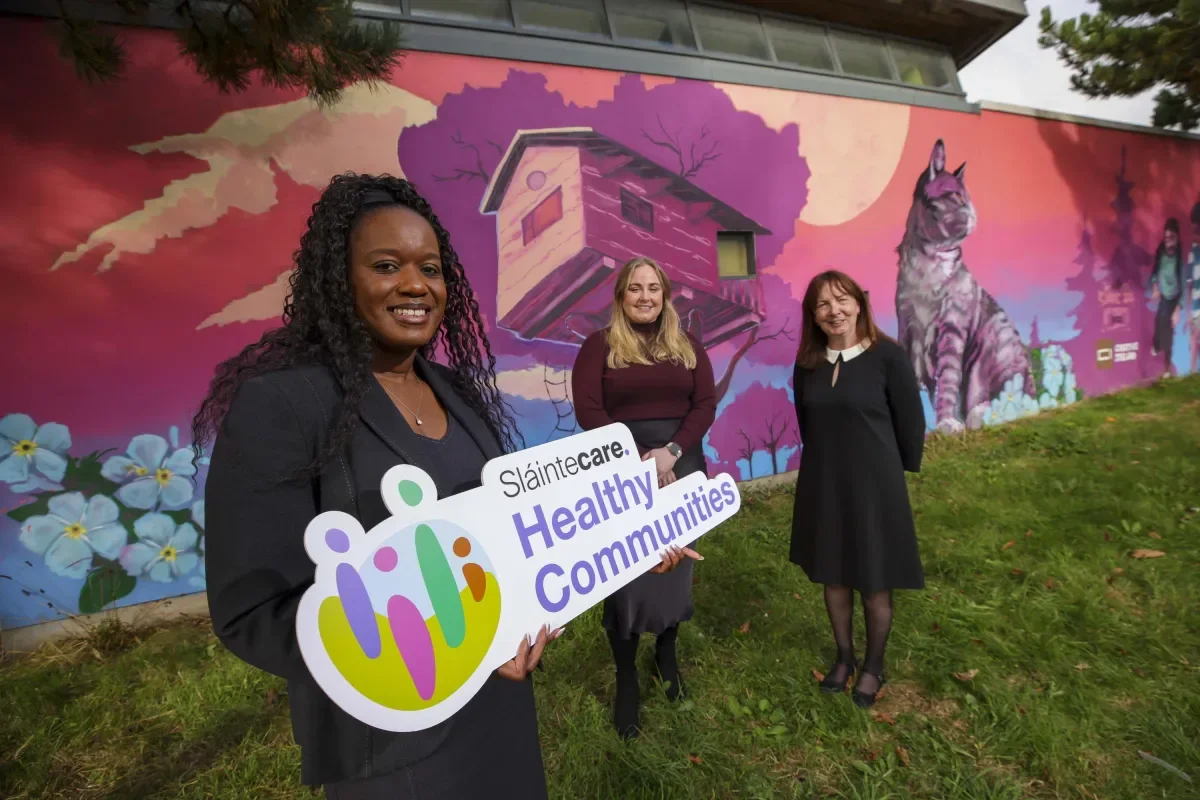

DCU-led Health Literacy Report launched
The Sláintecare Healthy Communities Health Literacy Report was launched on 24 September by Colm Burke, Minister of State with special responsibility for Public Health, Wellbeing and the National Drug Strategy in the Finglas Youth Resource Centre, Dublin 11.
This was a joint project between communities in Mayo and Cabra/Finglas with the principal research undertaken by DCU. The project was coordinated by Dave Mitchell, Assistant National Coordinator Healthy Ireland Local Government and Shauna McIntyre, Chief Officer DCC LCDC. Dr Hannah Goss was the Principal Investigator from DCU. Cabra/Finglas region was represented by Dr Talent Nyamakope, Local Development Officer SHCP Cabra & Finglas and Mayo County Council was represented by Mairead Carney, Local Development Officer SHCP.
With a growing focus and responsibility being given to Local Authorities for community well-being, Healthy Ireland Local Government plays an important role in encouraging local government to combine its effort at the local level leading to improved health and wellbeing outcomes. Healthy Ireland Programmes within local government are funded by the Department of Health with two main initiatives: Sláintecare Healthy Communities Programme where this research originated, and the Healthy Ireland Cities and Counties Programme. Healthy Ireland Local Government also operates the Healthy Cities & Counties of Ireland Network.
A key finding is that around 40% of adults in Ireland have limited health literacy which impacts their ability to effectively manage personal health and interact with healthcare services. Individuals with lower health literacy levels are less likely to engage in preventive healthcare measures and more likely to require emergency medical interventions, resulting in higher healthcare expenditures and poorer health outcomes. Improving health literacy helps individuals better access, understand, appraise and apply health information which can support healthier lifestyle choices and can improve ability to manage chronic conditions.
Recommendations based on report findings include the co-design, implementation and monitoring of programmes tailored to address the specific health literacy needs of diverse community groups, to increase investment in community-based initiatives that focus on elevating health literacy, particularly in the communities of greatest need and to ensure that health literacy is embedded in all aspects of health policy development and practice, recognising its role in achieving better health outcomes and more efficient use of healthcare resources.
Dean of DCU Faculty of Science & Health Prof Blánaid White said
"The DCU Faculty of Science & Health prides itself on its work in the local community, as we pursue our goal to transform lives and societies. This research is of national significance, as low health literacy affects everyone, from the individual to the overall healthcare system. It is vital that the recommendations in the report are acted upon to improve healthcare outcomes for people around the country."
Speaking on launching this new report, Minister for Health with special responsibility for Public Health, Wellbeing and the National Drug Strategy Colm Burke said
“These findings provide important insights into the challenges faced by many people as a result of poor health literacy. This report will help inform the development of critical programmes that will support people across diverse groups to engage with prevention measures and make healthier lifestyle choices. This will have benefits not just for themselves but also for the wider health service, leading to overall improved population health.”
The funding for this report was provided by the Department of Health under its Sláintecare Programme.
The Sláintecare Healthy Communities Health Literacy Report is available to download here.
